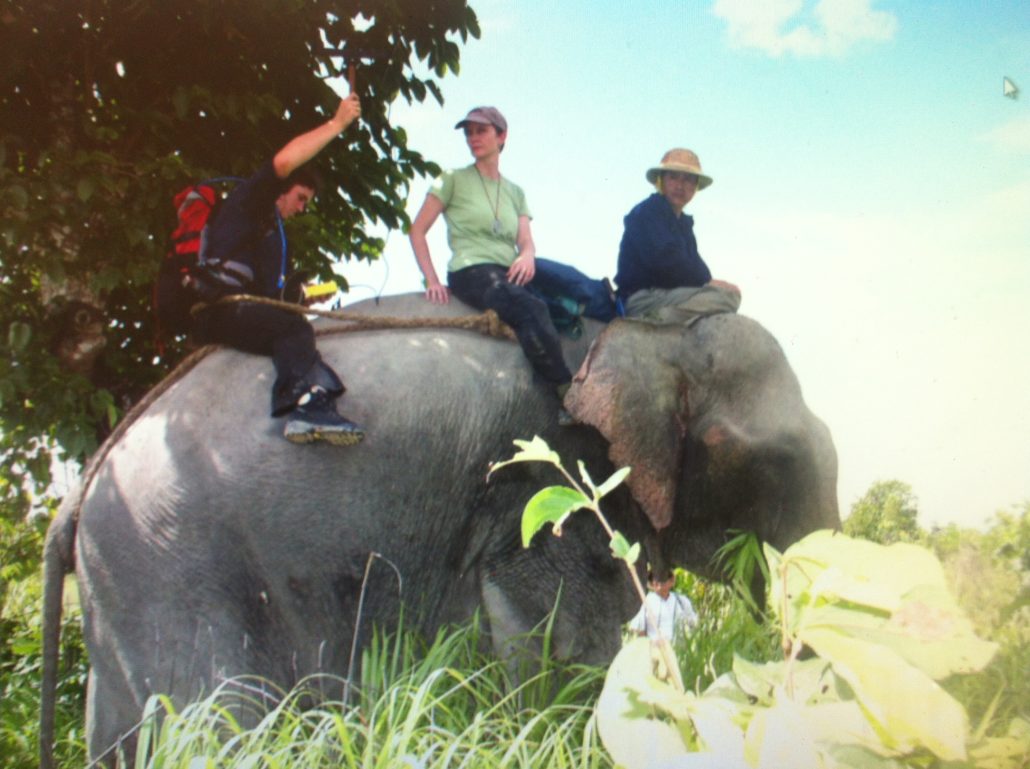In our member spotlight this week is SCBO board member Danielle Shanahan.
SCBO: How did you first hear about the Society for Conservation Biology?
Danielle: I was lucky enough to get to the ICCB in Beijing in 2009 as a PhD student. It was clear right from the start just how important the SCB was for connecting conservation scientists, managers and policy makers, and I was blown away by the global networks I developed through that conference. Since then, I have always wanted to be an active – not just passive – part of this very lively society!
How important do you think it is for conservation scientists to be aware of and engaged in policy related to their area of research?
I think if conservation scientists want to have an impact it is essential to be engaged with policy makers. A critical part of this is creating and maintaining personal relationships. So much policy development happens very fast, and is reactive to emerging events. In my experience, the people who had the greatest influence on the policies I developed were those who I knew, and those who responded quickly to emails! Remember, most people in government do not have access to wonderful university libraries full of academic papers, nor the time to read them! So those personal conversations you have are critical!
Prior to your last research fellowship you worked with the Queensland Government. Do you have any insights into the benefits and drawbacks of working in academia vs. government?
Gaining that government experience was brilliant – I had amazing opportunities to create new policies that had a real impact for national parks, strategic offsets, and state-wide biodiversity initiatives. Having the chance to drive biodiversity outcomes directly is rare in the academic scene! Governments do tend to be very large, somewhat unwieldy machines, though, and working within those confines can be challenging when faced with so many stakeholders. Ultimately, that experience has made me a much better conservation scientist. I learned that conservation so often about people, not species. I also learned about the challenges of getting good policy through the hoops, and realised the effort that goes on behind the scenes to make government tick. Honestly, I would recommend the experience to every young conservation scientist.
What has been the highlight of your conservation career to date?
I recently took on a challenging and unique role as manager of conservation, research, learning and experience at Zealandia, a not-for-profit fenced sanctuary in Wellington, New Zealand. This is my home town, so it has been quite amazing to bring everything I have learned from across the globe back here. I am working with many inspiring people, and with some of New Zealand’s most endangered species–right in the middle of a city. Many of the birds have started to flow beyond the sanctuary fence, and I am now also discovering just how much we need to re-learn to live alongside nature!
You current research explores how the “extinction of experience” influences human wellbeing in urban landscapes. Can you tell us a bit about what that means?
My research is all about understanding people’s connection to nature, and what that means for health and wellbeing. City residents are spending less and less time in nature – our Brisbane estimates suggest about 40% of people rarely use green spaces, and this is in a sunny, well-greened urban landscape! This is what we call the ‘extinction of experience’ of nature. These kinds of statistics are quite alarming, and even more so given the breadth of wellbeing outcomes we gain from being in green spaces–these range from reduced blood pressure to greater community cohesion.
How often do you get out and experience nature yourself?
I really got into conservation science because I love the wilderness, and love the outdoors–shame I spend so much time in front of a computer now! But I still spend as much time as I can outside work tramping, mountain biking, bird watching.
You’ve published papers on birds, marine fishes, crocodiles, and hedgehogs! What skills / opportunities / interests have led you to be involved with such a diversity of fauna?
I have worked hard to develop my fundamental skills in GIS and statistics in particular, and find that alongside quite broad experience in wildlife management I can adapt to many different systems! I am also now working on human health questions, and find that those skills also cross disciplines. I am really attracted to interdisciplinary questions, and I think this approach is going to be essential to solve many of the world’s most challenging conservation questions.
Do you have any advice for students looking for a career in conservation science?
This is a bit of weird advice, but I would say: be prepared to take risks, and to do the hard yards with the less glamorous jobs! My career really kicked off when I took a role doing weed control for the Department of Conservation in New Zealand, and then I jumped at a last-minute chance to take on an internship at the Smithsonian Institution’s Conservation Research Centre. This was a huge risk for me having never left New Zealand before – I put my flights on a credit card, took off with less than two weeks notice, and months later I found myself tracking wild elephants in Myanmar.

If you’d like to work with Danielle, you can! We are currently looking for new SCBO board members. Nominations are due before 28th April 2017. And if you’d like to visit Zealandia, we’ve got a great excuse for that too – save the date for SCBO 2018 in Wellington!
